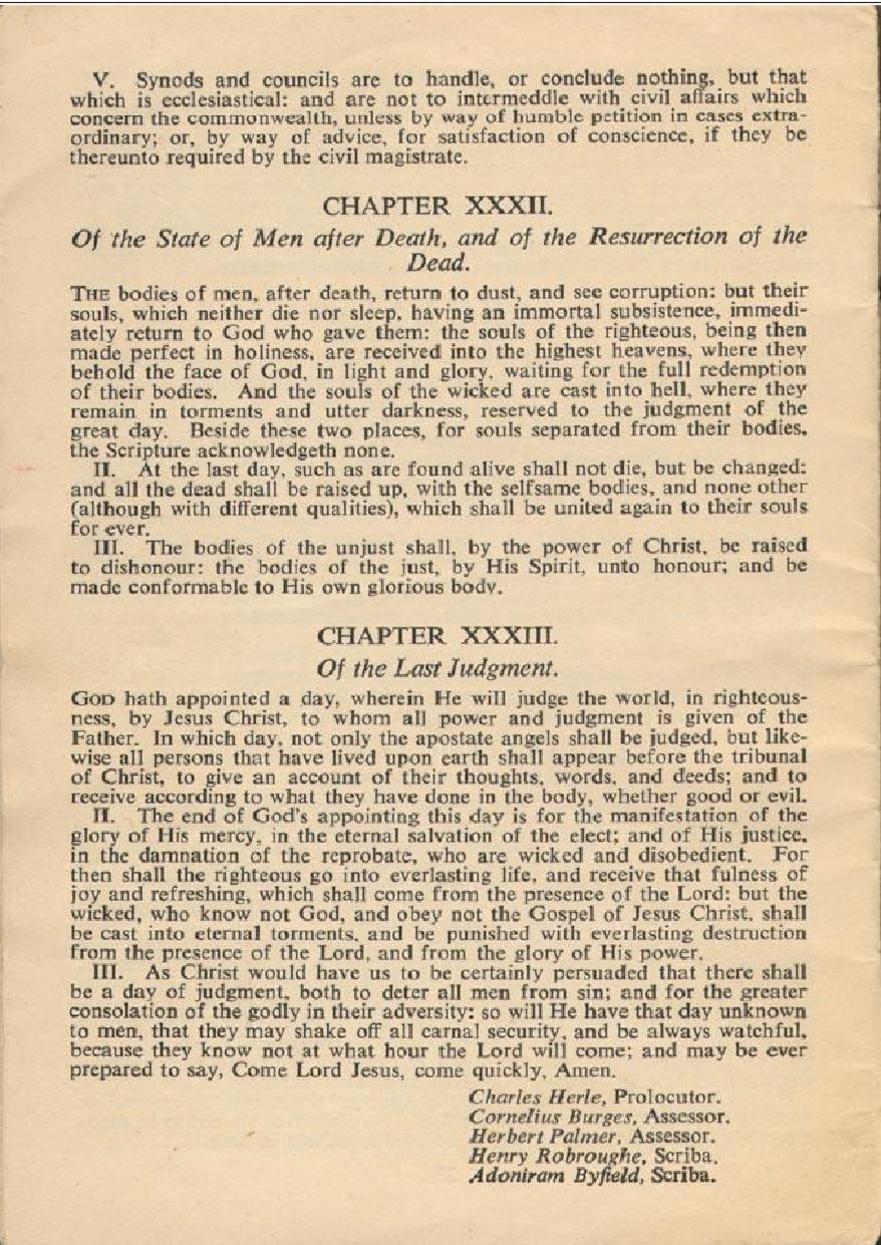V. Synods and councils are to handle, or conclude nothing, but that which is ecclesiastical: and are not to intermeddle with civil affairs which concern the commonwealth, unless by way of humble petition in cases extraordinary; or, by way of advice, for satisfaction of conscience, if they be thereunto required by the civil magistrate.
CHAPTER XXXII.
Of the State of Men after Death, and of the Resurrection of the Dead.
The bodies of men, after death, return to dust, and see corruption: but their souls, which neither die nor sleep, having an immortal subsistence, immediately return to God who gave them: the souls of the righteous, being then made perfect in holiness, are received into the highest heavens, where they behold the face of God, in light and glory, waiting for the full redemption of their bodies. And the souls of the wicked are cast into hell, where they remain in torments and utter darkness, reserved to the judgment of the great day. Beside these two places, for souls separated from their bodies, the Scripture acknowledgeth none.
II. At the last day, such as are found alive shall not die, but be changed: and all the dead shall be raised up, with the selfsame bodies, and none other (although with different qualities), which shall be united again to their souls for ever.
III. The bodies of the unjust shall, by the power of Christ, be raised to dishonour: the bodies of the just, by His Spirit, unto honour; and be made conformable to His own glorious body.
CHAPTER XXXIII.
Of the Last Judgment.
God hath appointed a day, wherein He will judge the world, in righteousness, by Jesus Christ, to whom all power and judgment is given of the Father. In which day, not only the apostate angels shall be judged, but likewise all persons that have lived upon earth shall appear before the tribunal of Christ, to give an account of their thoughts, words, and deeds; and to receive according to what they have done in the body, whether good or evil.
II. The end of God’s appointing this day is for the manifestation of the glory of His mercy, in the eternal salvation, of the elect; and of His justice, in the damnation of the reprobate, who are wicked and disobedient. For then shall the righteous go into everlasting life, and receive that fulness of joy and refreshing, which shall come from the presence of the Lord: but the wicked, who know not God, and obey not the Gospel of Jesus Christ, shall be cast into eternal torments, and be punished with everlasting destruction from the presence of the Lord, and from the glory of His power.
III. As Christ would have us to be certainly persuaded that there shall be a day of judgment, both to deter all men from sin; and for the greater consolation of the godly in their adversity: so will He have that day unknown to men, that they may shake off all carnal security, and be always watchful, because they know not at what hour the Lord will come; and may be ever prepared to say, Come Lord Jesus, come quickly, Amen.
Charles Herle, Prolocutor.
Cornelius Burges, Assessor.
Herbert Palmer, Assessor.
Henry Robroughe, Scriba.
Adoniram Byfield, Scriba.
